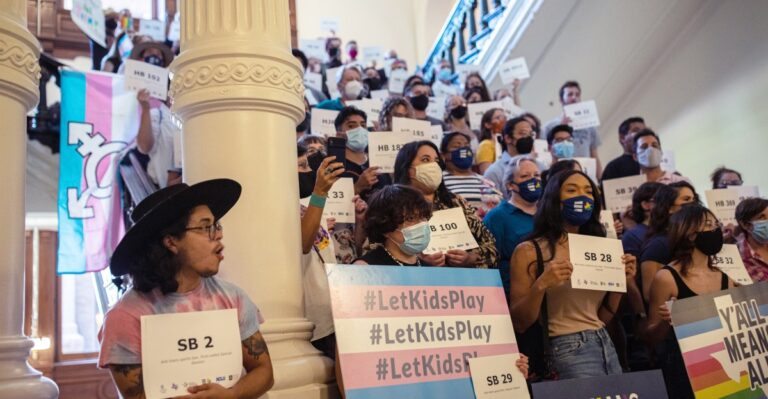President-elect Donald Trump and his allies, including through stated policy positions and elected campaign representatives, have called for his administration to ban transgender athletes from playing on school sports teams that match their gender identity. He has made it clear that he intends to do so.
President Trump's threat raises questions about whether transgender athletes can challenge their right to compete in school sports.
How would President Trump enact such a ban?
The executive branch has many controls over what counts as discrimination in education, thanks to Title IX of the Civil Rights Act, which was originally intended to promote equality for women. The Biden administration has taken the position that the law's protections against discrimination “on the basis of sex” mean that discrimination against trans students based on their transgender identity constitutes sex discrimination.
This interpretation of the law faced legal challenges and was rejected in about half of the states. The Trump administration can, and likely will, simply take the position that Title IX provides no protections for trans students.
John Valant, director of the Brown Education Policy Center at the Brookings Institution, said the Trump administration's interpretation of Title IX could go even further and claim that “trans athletes' participation in women's sports is discrimination against women.” . .
If Democratic governors and attorneys general move to block the new interpretation, there could be new legal battles over Title IX, which is essentially the opposite of the current Title IX situation. .
Ultimately, the administration could try to rewrite Title IX through Congress to clearly state this position, rather than simply interpreting current law that way, Valant said. Rep. Tim Burchett (R-Tenn.) already proposed a bill in July that would roll back the Biden-era regulations. President Trump also said he would ask Congress to pass legislation that would say there are only two genders.
Republicans are expected to hold slim majorities in both houses of Congress. Such a bill could pass, but would likely face some difficulty in the Senate, where Republicans lack a filibuster-proof majority.
Gillian Branstetter, communications strategist for the ACLU's Women's Rights Project and LGBTQ & HIV Project, said this type of law could be a stepping stone to dismantling transgender people's rights to non-discrimination in schools and workplaces and their ability to receive health care. He told Vox that there is. .
“I can't think of a single state or politician who took this issue and decided to focus solely on the rights of transgender athletes,” Branstetter said. “They used the exact same legal arguments, they used the exact same legislative language, they usually used the exact same lawyers, and they also used these legal arguments. [tactics] Banning gender-affirming medical care, restricting the bathrooms transgender people can use, and a long list of other restrictions continue. ”


